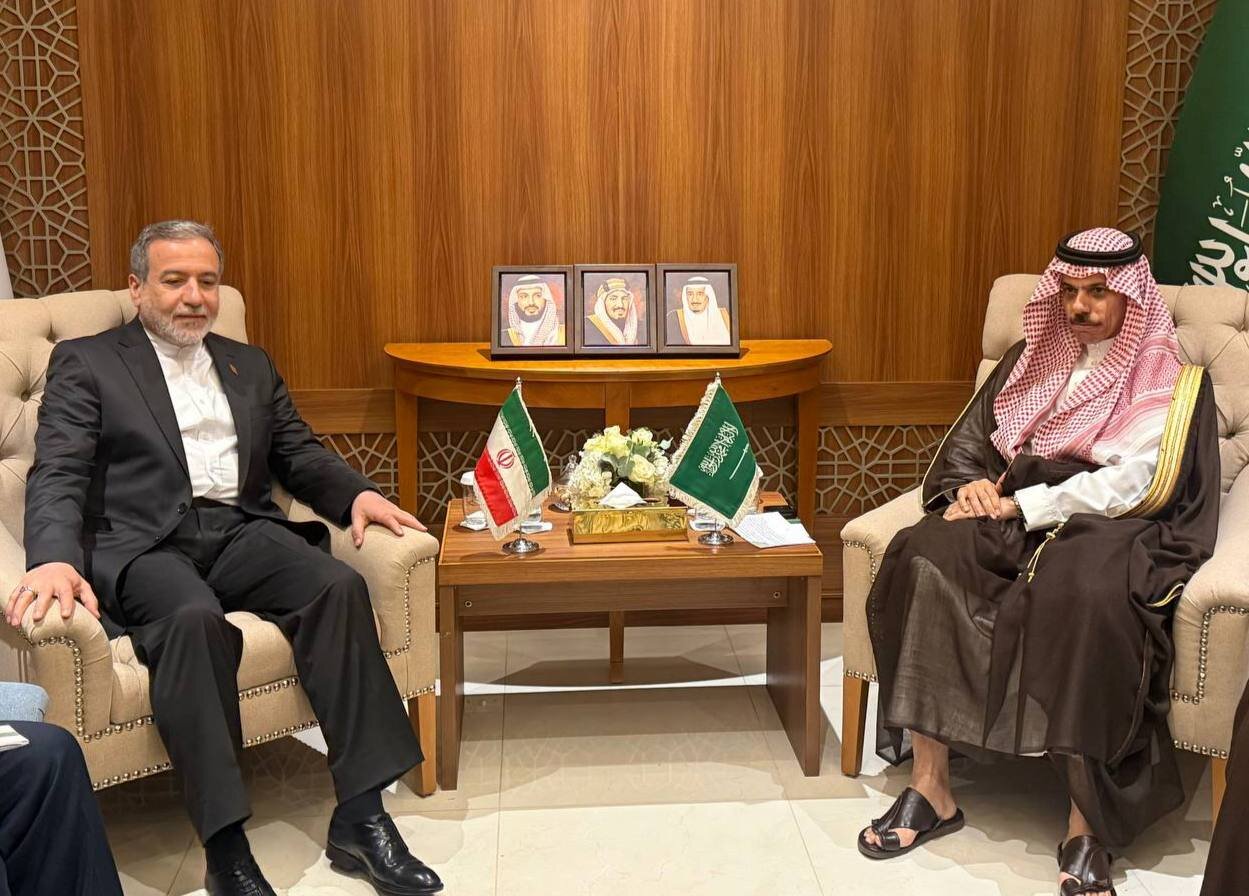Iran-Saudi ‘Greater Wall’ of unity against ‘Greater Israel’ vision

TEHRAN - Iranian Foreign Minister Abbas Araghchi’s warning about Israel’s pursuit of the so-called “Greater Israel” vision has carried significant weight during his visit to Saudi Arabia.
The top Iranian diplomat, who arrived in Jeddah on Sunday, held high-profile talks with senior officials, including Foreign Minister Prince Faisal bin Farhan Al Saud, and took part in an extraordinary two-day session of the Organization of Islamic Cooperation (OIC) Council of Foreign Ministers.
Ahead of the OIC meeting, Araghchi authored an article in Asharq al-Awsat in which he exposed Israel’s regional expansionist agenda. He cautioned that, following what he described as ethnic cleansing and genocide in Gaza, as well as attacks on Lebanon, Syria, Yemen, and Iran, Israel’s “insatiable expansionist ambitions” could soon threaten other regional states.
Concerns were further heightened earlier this month when Prime Minister Benjamin Netanyahu publicly endorsed the ‘Greater Israel’ vision, triggering swift condemnation from Arab and Islamic states. Last year, Finance Minister Bezalel Smotrich was also filmed advocating for Israeli borders to expand as far as Damascus, with the ultimate aim of encompassing not only all Palestinian territories but also parts of Jordan, Lebanon, Egypt, Syria, Iraq, and Saudi Arabia.
The concept of “Greater Israel” traces back to the aftermath of the Six Day War of June 1967, when Israel occupied East Jerusalem, the West Bank, the Gaza Strip, the Sinai Peninsula, and the Golan Heights. Some early Zionists had used the term more broadly to envision a state extending into present-day Jordan.
In his article, Araghchi described this project as “an existential threat and a danger to international peace and security.” His warning has gained urgency in light of Netanyahu’s public support.
The OIC meeting in Jeddah, which has focused on Israel’s war on Gaza and the worsening humanitarian catastrophe, could prove pivotal in countering the “Greater Israel” vision. But beyond OIC resolutions, Iran and Saudi Arabia—as the region’s two principal powers—are uniquely positioned to build a “Greater Wall” of unity to defend against Israeli expansionism.
This effort rests on the historic rapprochement between Tehran and Riyadh brokered by China in March 2023. That breakthrough, achieved in Beijing, restored diplomatic ties after seven years of rupture. It not only reshaped West Asia’s geopolitical landscape but also underscored the waning influence of the United States in the region.
Strengthening this unity, particularly through Araghchi’s meetings with senior Saudi officials, represents more than a defense of Palestinian rights. It signals a broader hedge against Israel’s regional ambitions.
The deepening partnership between Iran and Saudi Arabia across diplomatic, economic, and political spheres is gradually transforming the regional order.
Once rivals locked in regional competition, Tehran and Riyadh are now shaping a new chapter of cooperation grounded in mutual respect, collective security, and national sovereignty. Their growing partnership sends a powerful message: lasting stability in West Asia will not be achieved through foreign interference or military aggression, but through a united regional front built on dialogue, coordination, and shared purpose.
Leave a Comment